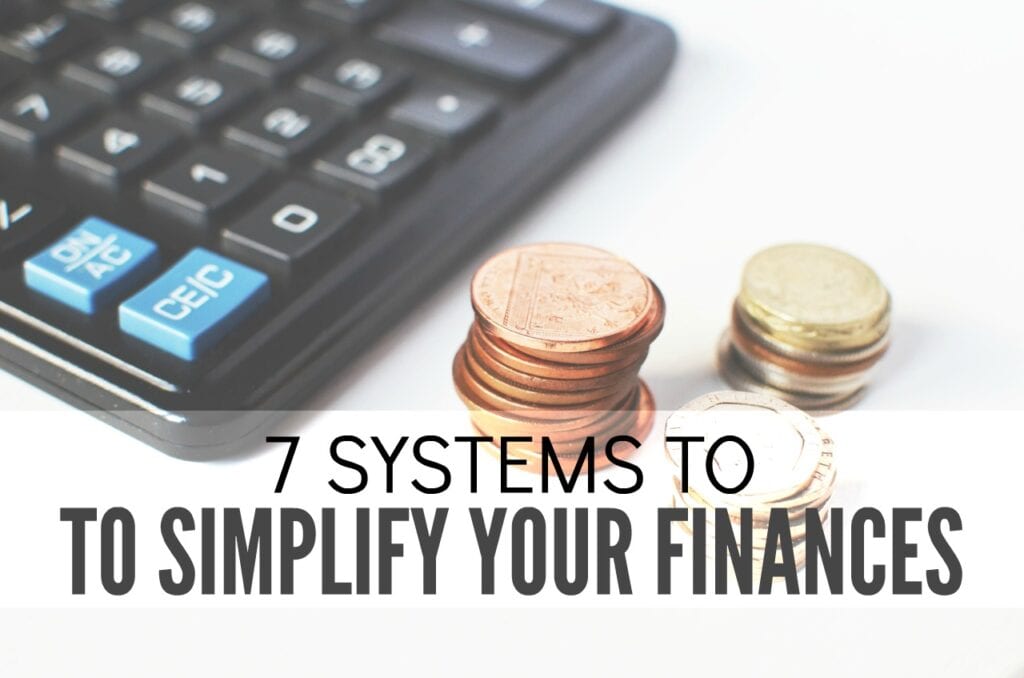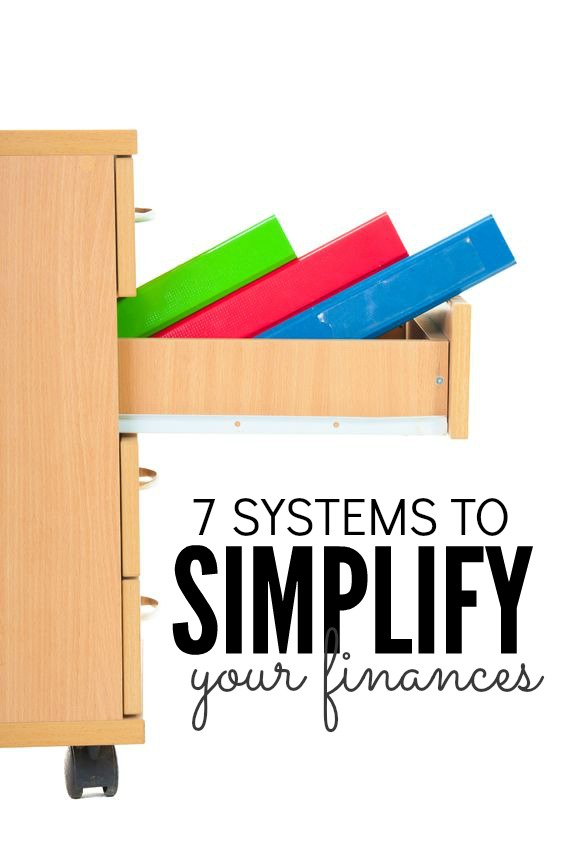 When I was in my early twenties I loved spring cleaning. I would whip out all of my cleaning supplies and spend hours making sure I had removed every last piece of dust. I even went as far as to make guests take off their shoes before entering the house. (Ugh.)
When I was in my early twenties I loved spring cleaning. I would whip out all of my cleaning supplies and spend hours making sure I had removed every last piece of dust. I even went as far as to make guests take off their shoes before entering the house. (Ugh.)
My cleaning style has definitely changed since then!
I no longer enjoy long tedious cleaning sessions or keep unattainable goals. I much prefer to keep everything in check all year round so I don’t end up with a huge and probably, impossible to-do list once per year.
That’s how personal finances should be too. You don’t want to let everything get so bad that it takes you hours upon hours to sort out your messes. Instead you should keep things fairly cleaned up (that doesn’t mean perfect) all year long.
Instead of spring cleaning your finances, here are seven of my favorite ways to simplify finances. These systems can keep you running smoothly all year long.
Gigs for Goals
For the last couple of years I’ve been pretty obsessed with creating multiple streams of income and using different ones to fund different goals. I thought I was pretty clever. Then one day I found an article on Budgets are Sexy from 2011 naming this method Gigs for Goals. While I obviously wasn’t the first to come up with the idea I still love how it works.
Basically Gigs for Goals is just using money from different sources for different financial goals. For instance, your day job could pay your regular expenses and retirement and a side job you work 10 hours per week could go toward a down payment fund.
This method is great for anyone who’s not able to meet their financial goals with their current income and needs to pick up a side job. It also works well for someone like me who works in a freelance/home business type capacity with dozens of payments from different sources each month.
You can read more about how I make this work here.
Having Weekly Money Time
One of my worst habits is not balancing my checkbook often enough.
I have a basket in my dining room that’s filled with all of my regularly used personal finance items and I’ll sometimes let debit card receipts pile up in that basket for two weeks.
I’ve been working hard for about a year to break this bad habit. And while I’m not completely there, I am pretty darn close.
I sit down, balance the checkbook, transfer money and pay all bills (most) every Friday. Sometimes I’ll even jump in there an extra day or two and check on things.
Having one day every week where I spend a half an hour or so straightening things out keeps our household finances running pretty smoothly.
Budgeting for Your Personality
There’s no one size fits all when it comes to budgeting. I recently wrote an article about this on The College Investor.
Having some sort of budgeting system is great but at the end of the day you have to find the one you’re going to stick to.
I prefer to use the Gigs for Goals where I automatically save money toward my savings and investing goals each month, pay the bills and then decide what to do with the leftover money, if there is any.
This is what works for me. I encourage you to find some sort of budgeting system that works for you.

Saving for Big Expenses on a Monthly Basis
There are big expenses that come about every year that are simply unavoidable. Things like insurance premiums, property tax, birthdays and Christmas cost money.
It’s much better to plan for these things so that you’re not stressing yourself out when they show up.
To do this I highly recommend that you open up an online savings account at a place like Discover. Discover Savings Accounts currently have interest rates at five times the national average plus there’s no minimum balance and absolutely no monthly fees.
(Online savings accounts are the best options for big savings like these as you can’t impulsively spend the money like you could with a savings account tied to your checking account.)
You can either set up individual savings account for each category you’re saving for or you can do what I do and set up a general savings account that you keep a minimum balance in.
Keeping a Buffer In Your Checking Account
Being that I’m self-employed it sometimes takes 3-4 days for me to transfer money to my bank account even after I get paid. And sometimes I need to pay a bill before that money fully transfers.
The last thing I want to do is overdraw my bank account. To remedy this I keep a decent sized buffer in my checking account.
My checking account buffer is kind of like an emergency fund for my emergency fund.
If you’ve ever accidentally overdrawn your account or find yourself worrying about doing so, I highly recommend that you create yourself a buffer.
Automation
I used to be scared of automation. I was worried that a company would accidentally take more money out of my checking account than they were supposed. I had to ease into the automation process. Now I love it and automate as much as I can.
If an expense is a regular set amount each month I automate the payment. I also automate my savings and investments.
Automation takes away the need for self-discipline and can be paramount in reaching savings goals.
A Super Simple Filing System
If you’re automating at least some of your bills hopefully you’ve cut down on the paper billing. If you have an internet connection paper billing is pretty unnecessary and can drastically cut down on your filing needs.
While I used to do things much differently, for the past year I’ve kept one folder in my “bill basket” that houses tax documents and anything I think I might need to keep for a few months or more. Everything else goes in the trash.
Only keep what you really, truly need and you won’t have to worry about filing systems.
So Easy
These systems are so easy. It takes me about a half an hour per week to keep all of my personal finances in order. Using easy systems will help your money situation run smooth all year long and you won’t have to worry about the spring cleaning!
What kind of systems do you use to keep your money organized?
This post is sponsored by Discover. All opinions are my own.
Photo Credit: tpabma / 123RF Stock Photo



Weekly money time and automation are AMAZING for me. Scheduling on my calendar and implementing success habits has been what has turned me away from being such a spender.
Yes, building good habits is so crucial 🙂
I like to run my monthly budget process towards the end of the month on the weekend. This helps me to balance my checking, transfer funds for investing, and re-calculate my new net worth. It’s a ritual I created that I’ve been following for more than 10 years. It has been the single most important step that I have taken to get my finances in check and build my net worth.
That’s awesome! I love how habitual it is for you.
I am a little nervous about using an only online bank. I am not sure why this is, but it is the truth. I like having a bank or credit union where they know me and where I can walk into and get my money anytime I want. I know that you say the national averages are better, but it is out of my comfort zone.
My money trick that my husband and I follow is what we call The State of the Union. We sit down once per month and look at our checkbooks, accounts and retirement accounts. We then sit and talk about how things have changed (for better or worse) and what we want to see change so that we can meet our goals. Being on the same page is key.
I think your money meetings with your husband is great. It’s awesome that you two are on the same page .I’m sure it’s very motivating!
And about not feeling comfortable using an online savings account – at the end of the day you’ve gotta do whatever feels best to you! I prefer to have online savings and local checking 🙂
Filing system ? To be truthful, I use clear ziplock bags. They work great! I can see what is in there and they aren’t scattered all over the desk. If I leave them on the desk, they fall on the floor! If you have a big mess to sort out this is the easiest way. 😉
I agree you should never have a debit card for a savings account.